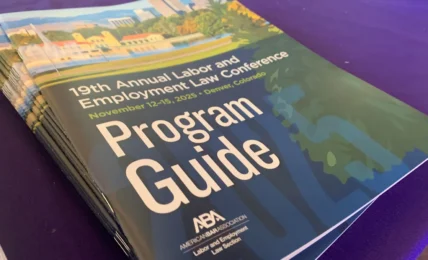The Fifth Circuit U.S. Court of Appeals released a ruling granting an administrative stay temporarily halting the U.S. Securities and Exchange Commission’s (SEC) new climate-related disclosure rule, marking the latest in a series of challenges to the implementation of the new rule requiring companies to report on climate-related risks and greenhouse gas (GHG) emissions.
The court’s ruling comes in response to a petition filed by oilfield services company Liberty Energy, and frac sand company Nomad Proppant, partly owned by Liberty, requesting the stay pending a review of the rule. In the petition, the companies said that the SEC’s initial proposal aimed to “inject the SEC into the world of climate politics,” and to compel the disclosure by public companies of “a breathtaking volume of information, much of it highly speculative,” including on GHG emissions, and climate-related risks.
The SEC announced the release and adoption of the new rules on earlier this month, 2 years following the Commission’s initial draft release, establishing for the first time requirements for public companies in the U.S. to provide disclosure on climate risks facing their businesses, plans to address those risks, the financial impact of severe weather events, and, in some cases, greenhouse gas emissions originating from their operations.
While marking a major sustainability reporting milestone, the finalized SEC rule significantly scaled back the requirements of the SEC’s initial proposal, most notably removing the requirement for companies to report on Scope 3 emissions, or those originating in their value chains, and requiring Scope 1 and 2 operational emissions reporting only from larger companies, and even then, only when deemed material.
Despite, and even because of, the less onerous requirements of the long-anticipated finalized requirements, however, the SEC’s new rule is already facing a series of challenges, including a lawsuit filed by ten U.S. states aimed at blocking its implementation, describing it as “arbitrary, capricious, an abuse of discretion, and not in accordance with law,” and asking the court to strike down the rule as unlawful.
At the federal level, Congressional Republicans have launched a series of initiatives against the rule over the past several months, with the House Financial Services Committee in July 2023 introducing the Guiding Uniform and Responsible Disclosure Requirements and Information Limits (GUARDRAIL) Act, which would only allow the SEC to require disclosure that the issuer has determined as material to a voting or investment decision. In February 2023, Republican congressional leaders published a letter to SEC Chair Gary Gensler, arguing that the rule exceeds the SEC’s authority, accusing the SEC under Gensler of pursuing a “progressive social agenda,” and arguing that a climate disclosure rule “in any form,” would “harm consumers, workers, and the U.S. economy.”
On the other side, environmental organization the Sierra Club filed a lawsuit against the SEC, arguing that the finalized rule was overly weakened relative to the Commission’s initial proposal, and will not provide investors with enough information about companies’ exposure to climate-related risks.
Following the launch of the earlier lawsuit by the ten U.S. states, an SEC spokesperson stated that “the Commission undertakes rulemaking consistent with its authorities and laws governing the administrative process and will vigorously defend the final climate risk disclosure rules in court.”
The petition by Liberty and Nomad made a series of claims aimed halting the rule, including arguing that the SEC does not have authority to “effectively regulate the controversial issue of climate change,” and that the rule is “arbitrary and capricious,” and lacking in evidence that it will improve company performance or shareholder value.
The petition also claimed that the rule will cause “irreparable injury,” due to the cost imposed on companies, citing the SEC’s own estimate that compliance will cost companies cumulatively over $4 billion.
The court’s ruling did not provide any reasoning for the stay, indicating only that it had been granted.


